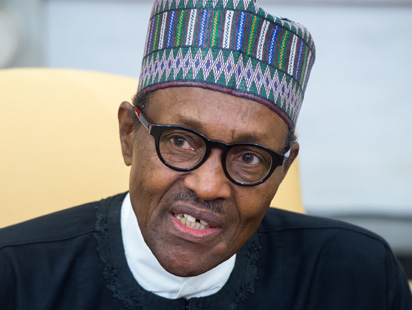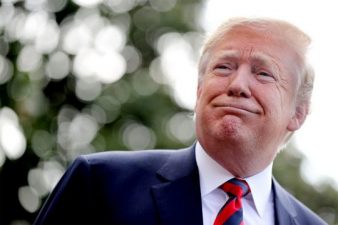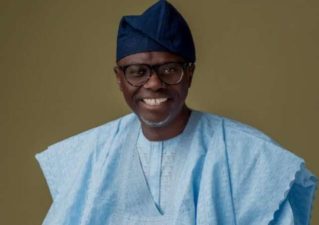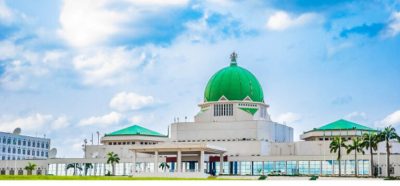“One thing everybody should appreciate in this country is that this is somebody who came out boldly to say he approved the withdrawal out of exigency of time. And this is the first time in the history of Nigeria that this is happening. Successive governments had also dipped hands into the Excess Crude Account and they never accounted to anyone. But this is a man full of transparency who came out boldly to say what he has done. Some people may ask why did he do it but if he did not, who else should do it?”
Following the controversies over the failure of President Muhammadu Buhari to seek the consent of the National Assembly before withdrawing $496m from the Excess Crude Account to purchase fighter jets from the United States, the president has received the backing of two national lawmakers.
House of Representatives member, Hon Ibrahim Isiaka and Senator Abu Ibrahim argued that instead of vilifying the president, he should rather be applauded as he acted in national interest.
Hon Isiaka, in his submissions conceded that though the president erred when he failed to abide by the constitutional mandate to seek the approval of the National Assembly as spelt out in sections 80 and 81 of the 1999 constitution, President Buhari did not commit any offence to warrant any punishment for the violation.
He argued that before the impeachment process could be carried out the national assembly must muster the support of two third majority of its members which he argued would be difficult to achieve.
According to him, “since the House of Representatives has 360 members, not less than 240 members must append their signatures for any motion seeking such action. And how is it possible to garner this number, especially in the seemingly wide division among members along party lines as well as ethnic and religious sentiments in the country?”
The 51-year old representative of Ifo/Ewekoro Federal Constituency of Ogun State on the platform of the ruling All Progressives Congress, APC, said “notwithstanding what President Buhari did, he remains the most transparent of all the nation’s leaders. After all, others did similar withdrawals of money from the same treasury in the past but neither admitted now informed the legislature as Buhari did. And any impeachment motion brought by any of the two chambers of the legislature on account of the removal of money to buy the fighter jets will fail because the president acted to beat the deadline for the payment of the money”.
He further said, “one thing everybody should appreciate in this country is that this is somebody who came out boldly to say he approved the withdrawal out of exigency of time. And this is the first time in the history of Nigeria that this is happening. Successive governments had also dipped hands into the Excess Crude Account and they never accounted to anyone. But this is a man full of transparency who came out boldly to say what he has done. Some people may ask why did he do it but if he did not, who else should do it?
“So, I think we should look at the merit and the transparency of the president in writing to the National Assembly to admit what he did. None of his predecessors ever came to the National Assembly to say they ever did anything of such. That means he’s a man of integrity.
“We should just admit and move forward. I’m not saying the president should bypass the Constitution but admitting alone is courageous. So, we should accept the fact and move forward and save Nigeria from these calamities going on. The terrorists who are carrying out attacks know what they want and they go straight for it. So as a father, you don’t just sit down when there is fire in your house because when you waste time it will get out of hand”.
In a similar vein, senator representing Katsina South, Buhari’s home state, Abu Ibrahim said the president should rather be applauded as he acted in national interest.
He said contemplating the president’s impeachment was out of fashion and should be immediately jettisoned as what the president did was not for pecuniary gains.
According to Senator Ibrahim, “the president authorized the payment based on national interest. As far as I’m concerned, this is the first time that money drawn from excess crude account was brought to the National Assembly. Since they began to operate this account, I have never seen any expenditure that was brought here for approval.
“$17.7 billion was withdrawn by Obasanjo from excess crude account to pay the Paris Club and to fund two projects without National Assembly approval. Obasanjo left $943 billion in excess crude account but former President Goodluck Jonathan frittered away the money with no recourse to the National Assembly. The Excess Crude account increased from $5.16 billion in 2005 to over $20 billion in 2008 but went down to less than $4 billion in 2010 during Jonathan’s tenure. It never came to National Assembly for approval.
“Like I said on the floor of the Senate when the president’s letter explaining the reasons for the action was tabled before us, if this is a PDP conspiracy to tarnish the image of Muhammadu Buhari, they will not be able to do it because we are coming out with figures. So as far as I’m concerned, the issue of impeachment of Mr President over the removal of money from the Excess Crude Account to buy fighter aircraft considered to be for national interest, is dead on arrival,” he boasted.
However one looks at the issue and the intrigues trailing it, those who are not new to the politics at the National Assembly will readily admit that impeachment has always been a recurring threat deployed by the legislature to tackle any acrimonious relationship with any sitting president each time there was one.
Since the return of the democratic dispensation in 1999, impeachment threats have always been issued by the legislature, both at the Senate and the House of Representatives against presidents.
The only president who escaped the threat as recorded in Nigeria’s history was late President Umaru Yar’Adua. The reason for this may be his short stay in office owing to his health condition which later resulted in his death.
As frequent as impeachment threats against sitting presidents have always occurred in the parliament, the presidents who were the targets have always escaped because the required number of legislators needed to invoke the action as contained in Section 143 of the 1999 Constitution was either not secured or due to the intervention of prominent leaders in the country.
Between September and October 2002, during the tenure of Chief Olusegun Obasanjo, the House of Representatives headed then by Alhaji Ghali Na’Abah slammed a-17 counts charge against the president as basis for his impeachment.
Most of the charges of breach of the constitution, released at a news conference by Farouk Lawan, then Chairman of the House Committee on Information, revolved around claims of non-implementation of budgets for three years, as contained in the appropriation laws.
Besides, the legislature took Obasanjo to task over internal military operations he authorised at Odi, in Rivers State in 1999, and Zaki Biam in Benue State in 2001, during which hundreds of civilians were killed by military troops deployed. Obasanjo had failed to obtain the consent of the legislature before giving orders for such military operations, as required under the constitution, according to the House.
Members of the House representing the ruling People’s Democratic Party (PDP), which had a comfortable majority in both chambers of parliament, forwarded details of the alleged breaches of the constitution to the party leadership, preparatory to impeachment proceedings against him.
After the ultimatum expired, the PDP-controlled Senate gave its backing to the lower house of parliament, further deepening a crisis that divided the ruling party and raised fears about the survival of democracy in Nigeria.
The president survived the threat at the instance of some prominent Nigerians including former Head of State, General Yakubu Gowon, former Military President, General Ibrahim Babangida, former President Shehu Shagari among others who intervened in the matter. (Vanguard)




